Predict. Prevent. Prosper.
Space Debris Could Cost You Millions...
Your business relies on satellite data to operate smoothly and efficiently. But space debris poses significant
risks that can disrupt your services...
Debris in Motion (01 Jan 2019) - Source: NASA orbital debris program office
Actively addressing the space debris challenge:






Is Your Satellite Service Provider Truly Reliable?
When choosing a satellite service provider, you consider factors like cost, coverage, and reliability, etc.
But...
Have you ever thought about the risk posed by space debris?
Many businesses meticulously evaluate parameters such as cost, ground infrastructure, and technical specifications when selecting a satellite service provider.
However, they often overlook a critical factor: the risk of debris collision.
Every year, the number of satellites in orbit increases, making key orbital bands more crowded and collision risks higher.
Imagine!
Your satellite service provider’s satellite is in an orbit that is a hotspot for space debris.
One collision could lead to service interruptions, data loss, and significant financial impacts on your business.
Are You Prepared for That Risk?
7,560
Actives Satellites
Rapid growth from 2,000 in 2019 to 7,560 by May 2024,
increasing collision risks.
36,000
Large Debris
A vast number of large debris objects threaten the stability and safety of satellite operations.
1M+
Pieces of Debris
Millions of smaller debris pieces create numerous hazards, increasing the risk of satellite damage.
130M
Micro Debris
An immense quantity of micro debris underscores the critical importance of advanced space monitoring.
Actives Satellites according to the Union of Concerned Scientists (May 2024) - Source: UCS Satellite Database
The latest figures related to space debris (06 Dec 2023) - Source: ESA Space debris by the numbers
What About The Unregistered Satellites?
Satellites registration IS NOT Mandatory.
This lack of mandatory registration means many countries do not register their satellites, significantly increasing the risk of unexpected collisions.
According to Brice Tech, we are likely dealing with around 10,000 small satellites.
This unaccounted-for presence in space amplifies the danger and unpredictability of potential collisions.

Smallsats by the Numbers 2024 (17 Apr 2024) - Source: Bryce Tech Reports
Curious About the Scale?
Explore the data yourself. Use the interactive graph below provided by UNOOSA to visualize the exponential number of objects launched into space.
See how the numbers have skyrocketed and why proactive measures are crucial.
Secure Your Operations: Know Your Satellite Provider Risks
We empower clients with the ability to quickly assess and manage space disruption risks using our platform. This ensures compliance with critical infrastructure protection regulations and facilitates informed decision-making. As a result, they can develop effective risk mitigation strategies, easily select suppliers based on space debris disruption risk estimations, and negotiate better pricing, all while communicating their secure and sustainable practices to stakeholders.
Comprehensive Platform Features
Real-Time Access: Immediate and continuous access to our platform for up-to-date risk assessments.
Constant Model Updates: Our model is frequently updated with the latest data from space agencies like ESA.
Supplier Insights: Evaluate suppliers, customers, and competitors based on their dependency on space services.
Comprehensive Risk Scoring: Easy-to-understand risk scores for informed decision-making.
Consultancy Access: Expert guidance on risk mitigation.
Accurate Data: Utilizes the latest data from space agencies for precise estimations.
Comprehensive Platform Features
Real-Time Access: Immediate and continuous access to our platform for up-to-date risk assessments.
Constant Model Updates: Our model is frequently updated with the latest data from space agencies like ESA.
Supplier Insights: Evaluate suppliers, customers, and competitors based on their dependency on space services.
Comprehensive Risk Scoring: Easy-to-understand risk scores for informed decision-making.
Consultancy Access: Expert guidance on risk mitigation.
Accurate Data: Utilizes the latest data from space agencies for precise estimations.

Risk Assessment and Safety Ratings
This service combines debris risk assessment and the Orbital Debris Safety Rating system to provide comprehensive safety evaluations for satellites and other space assets. It includes detailed risk reports, a graded rating system from F to A+, and real-time alerts for collision avoidance to help clients manage and mitigate potential hazards effectively.

Consultancy and Compliance Solutions
Offers expertise in sustainability practices and regulatory compliance, assisting clients in navigating the complex landscape of space regulations. This service includes sustainability consulting, regulatory compliance guidance, and stakeholder engagement to promote sustainable operations and adherence to international standards.

Data Analytics and Operational Support
Provides advanced data integration and analysis services tailored to enhance operational decision-making in space. This includes processing and analyzing extensive debris and operational data to optimize mission planning and improve overall safety in crowded orbital environments.

Education and Public Policy Engagement
Focuses on educating stakeholders about space debris risks and management strategies through workshops, seminars, and comprehensive risk communication tools. Additionally, it supports public policy development by providing data-driven insights and expertise to policymakers, helping to shape effective space safety regulations globally.
Comprehensive Platform Features
Real-Time Access: Immediate and continuous access to our platform for up-to-date risk assessments.
Constant Model Updates: Our model is frequently updated with the latest data from space agencies like ESA.
Supplier Insights: Evaluate suppliers, customers, and competitors based on their dependency on space services.
Comprehensive Risk Scoring: Easy-to-understand risk scores for informed decision-making.
Consultancy Access: Expert guidance on risk mitigation.
Accurate Data: Utilizes the latest data from space agencies for precise estimations.
Comprehensive Platform Features
Real-Time Access: Immediate and continuous access to our platform for up-to-date risk assessments.
Constant Model Updates: Our model is frequently updated with the latest data from space agencies like ESA.
Supplier Insights: Evaluate suppliers, customers, and competitors based on their dependency on space services.
Comprehensive Risk Scoring: Easy-to-understand risk scores for informed decision-making.
Consultancy Access: Expert guidance on risk mitigation.
Accurate Data: Utilizes the latest data from space agencies for precise estimations.
Prominent media outlets raising awareness about space debris:






FAQS
What is Critical Orbit?
Critical Orbit is a platform designed to enhance space sustainability and mitigate the risks posed by space debris. It integrates data from space agencies and uses machine learning to provide real-time risk assessments and safety ratings for satellite operations.
Who can benefit from Critical Orbit’s services?
Our services are tailored for companies that rely on satellite services, such as media companies, state agencies, the military, and service providers to various industries. We also cater to financial institutions like banks and insurance companies with exposure to space industry risks.
How does Critical Orbit’s Orbital Debris Safety Rating work?
We collect and integrate data from sources like ESA to simulate the space environment. Our machine learning models estimate unseen debris, translating complex data into an easy-to-understand risk rating system from F to A+.
Why is managing space debris important?
Space debris poses significant risks to satellites, which are critical for services like communications, navigation, and environmental monitoring. Effective risk management ensures the continued provision of these vital services and prevents potential disruptions.
What kind of data does Critical Orbit use?
We use historical and current data from major space agencies, including ESA, to track and simulate space debris. This data is constantly updated to provide the most accurate risk assessments.
How can your platform help financial institutions?
Banks and insurance companies can use our risk assessments to price space-related risks accurately, adjust premiums, and develop better financial strategies based on the vulnerability of specific space systems.
Does Critical Orbit replace existing space situational awareness systems?
No, our platform complements existing space situational awareness and space traffic management systems provided by governmental agencies. We provide an additional layer of risk management tailored to the needs of non-expert stakeholders.
What are the main features of the platform?
Key features include real-time access to risk assessments, constant updates to the risk model, comprehensive risk scoring, and access to expert consultancy for risk mitigation.
How does Critical Orbit contribute to sustainability?
By providing detailed risk assessments, we help stakeholders adopt more sustainable practices, invest in debris mitigation technologies, and comply with critical infrastructure protection legislation, ultimately fostering a safer space environment.
What is the vision of Critical Orbit?
Our vision is to create a sustainable space environment where all stakeholders can operate securely, free from the threats posed by space debris. We aim to enhance awareness and provide actionable insights to ensure the long-term health of our orbital commons.
How long has the team been working on space sustainability?
Our leadership team has been dedicated to space sustainability since 2012, with experience spanning critical infrastructure protection, advanced research at MIT, and strategic roles within the EU Council on Space.
What inspired the creation of Critical Orbit?
The increasing threat of space debris and the need for better risk management tools inspired our team. Our goal is to bridge the knowledge gap between space operators and non-expert stakeholders, ensuring a safer and more sustainable space environment for all.
Why should I consider space disruption risk in my risk management?
Space disruption risk is increasingly critical due to the rising amount of space debris, which can impact essential services. Proactively managing this risk ensures compliance with regulations and enhances operational resilience.
Is space disruption risk management required by the government?
While it may not be currently required, future regulations are likely to mandate it. Staying ahead of potential requirements can prevent fines and enhance compliance.
How do I know if I've been affected by a satellite disruption?
Even if you haven't experienced an obvious disruption, understanding potential risks helps in preventing future issues and optimizing your space service strategies.
How is the pricing for risk management determined?
Our pricing is based on comprehensive data analysis and risk assessments tailored to your specific needs, ensuring transparency and value.
Can my space service provider mitigate disruption risks?
While providers may have mitigation systems, our platform offers a detailed risk assessment that enhances your understanding and management of potential disruptions.
Will I need to include space disruption risk in future plans?
As space becomes more congested, including space disruption risk in your plans is essential for compliance, risk mitigation, and strategic decision-making.
Is space disruption risk management necessary if collisions are considered an “Act of God”?
Despite being considered an "Act of God," proactive risk management minimizes potential impacts, protects your operations, and strengthens your strategic resilience.

